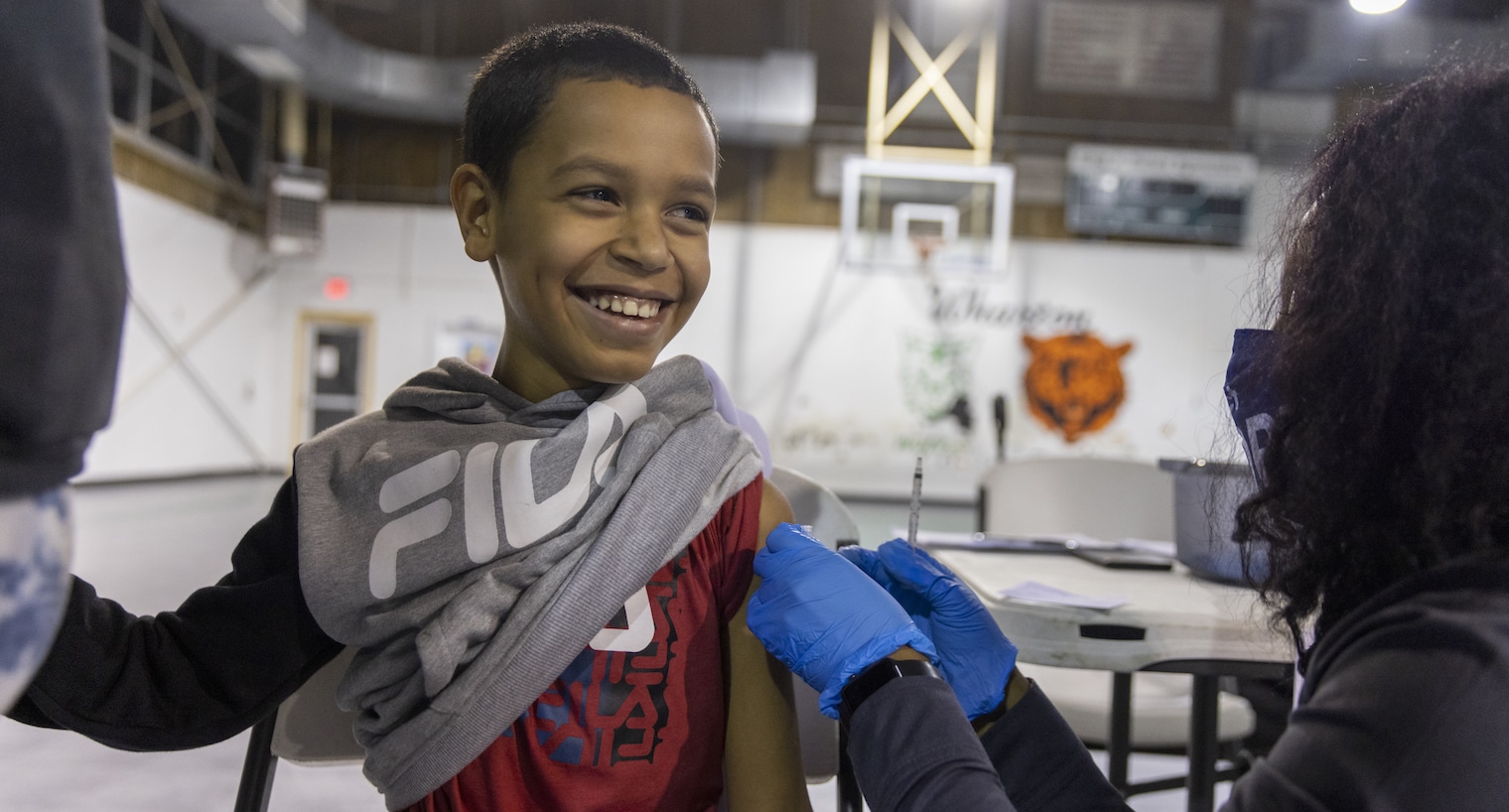
COVID-19 and Project HOPE’s Evolving Response
From urgent action in the first weeks of the pandemic to our expanded focus on mental health, pandemic preparedness, and health system strengthening, Project HOPE’s response to COVID-19 has been a comprehensive effort.
>> Read more about Project HOPE’s impact during the worst of the COVID-19 pandemic
In late 2019 and early 2020 — before most of the world even knew the word COVID-19 — Project HOPE’s team of global health experts and emergency response professionals were hard at work preparing our staff and partners to respond when health systems around the world became overwhelmed by the virus.
Our teams implemented a highly coordinated, whole-of-organization response to COVID-19, including regional partnerships to monitor the spread of the virus, the delivery of lifesaving protective gear to the hardest hit regions, deployments of medical volunteers, trainings to protect the mental health of frontline health workers, targeted vaccine outreach to communities without regular access to primary health services, and working with partners to ensure the continuity of health services around the world.
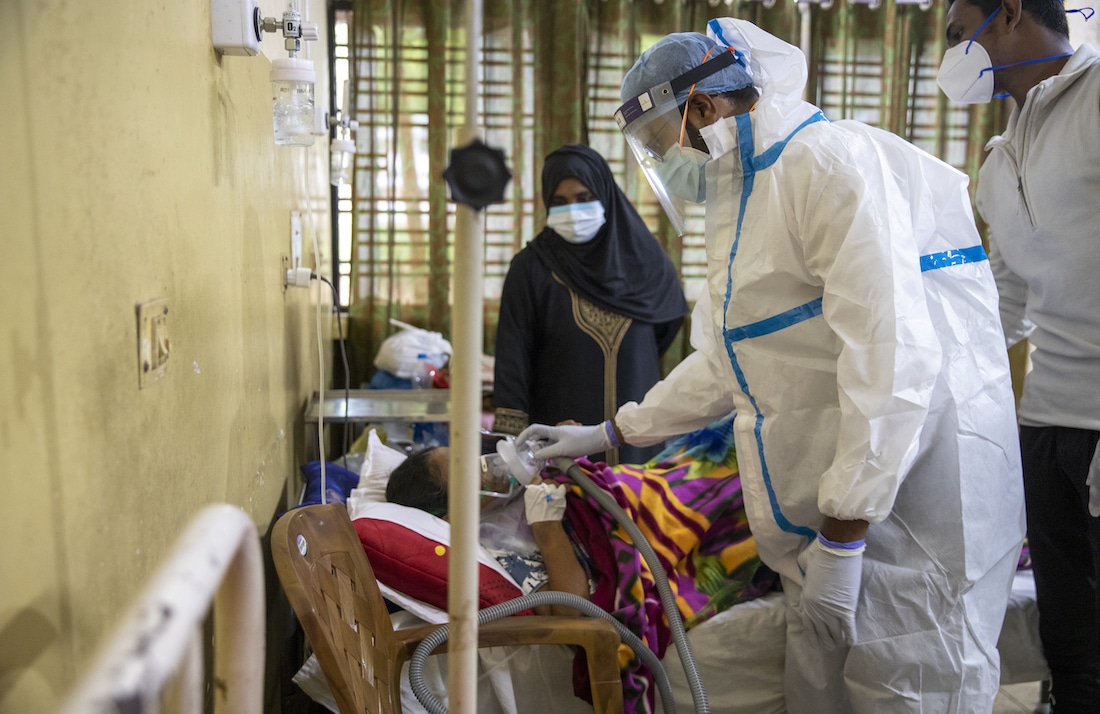

![]() The Power of Urgent Action
The Power of Urgent Action
![]()
![]()
![]()
![]()
![]()
![]()
Project HOPE’s team mobilized quickly to respond to the needs of health workers, communities, and health systems impacted by the pandemic. Together, with the support of our donors and partners:
-
- Project HOPE delivered PPE to overworked health workers in 20 countries, including India, Nepal, Lebanon, Honduras, Colombia, Navajo Nation, and the United States (Arizona, California, Illinois, Louisiana, Maryland, Massachusetts, Michigan, New Jersey, New Mexico, New York, Pennsylvania, Puerto Rico, and Texas).
- Through our volunteer teams, we provided surge support in health systems that brought care to thousands of patients in ICUs, surge units, and COVID-19 testing units in Texas, Navajo Nation, Illinois, and Maryland.
- Project HOPE was one of the only international relief organizations responding on the ground in China at the beginning of the coronavirus outbreak, providing millions of facemasks, isolation gowns, protective coveralls, exam gloves, and other protective gear. Some of the first nurses to treat the virus in China were trained at the HOPE School of Nursing in Wuhan. Project HOPE also provided lifesaving medical equipment to support patient care and treatment, including disinfection machines, medical air compressors, and ventilators.
- We launched online trainings for doctors and nurses to become Master Trainers in infection prevention and control. The trainings are now available for free on DisasterReady.org.
- We improved access to tens of thousands of COVID-19 vaccines via free and charitable clinics across five states through a program funded by the U.S. Health Resources and Services Administration to help thousands of people in underserved communities access the vaccine, including refugees, migrants, and undocumented persons.
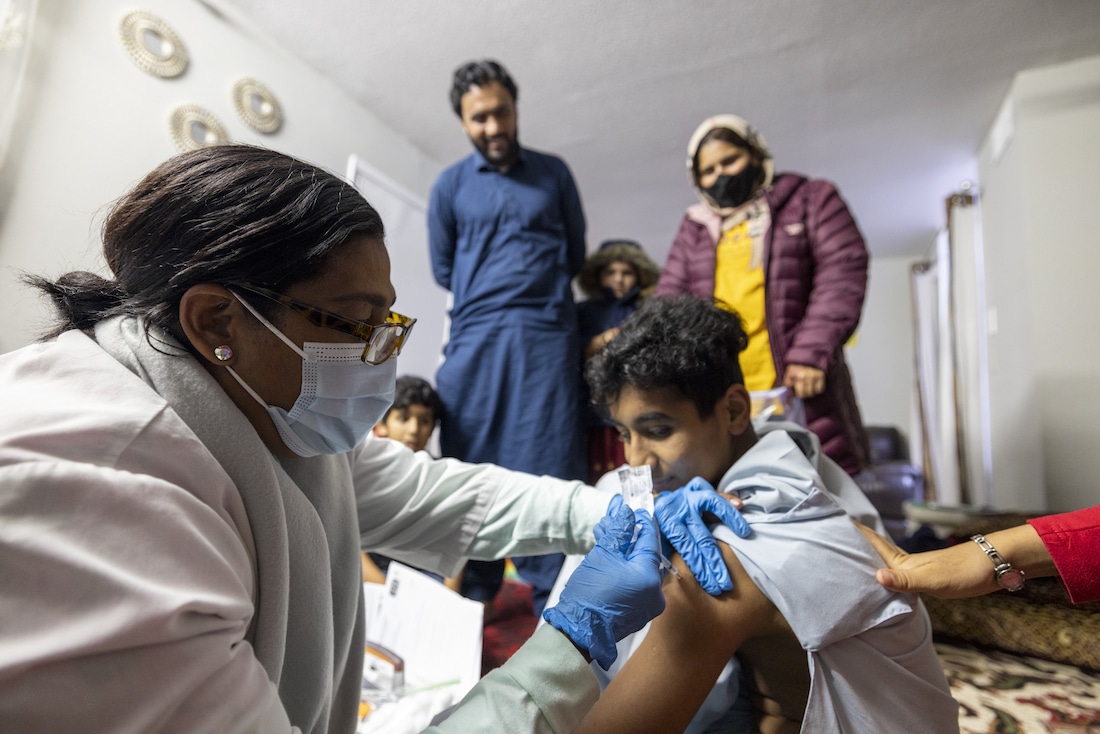
Strengthening Health Systems for the Long Term
In our response to COVID-19, our team learned valuable lessons that have expanded our capacity to respond strategically to future health and humanitarian crises. As emergency responders and global health experts, we know how to deliver lifesaving aid, tackle complex global health challenges like infectious diseases, and equip health workers and their communities with the tools they need to create impact that lasts.
Despite the supply chain difficulties in the early stages of the pandemic, our capable logistics and emergency response teams were able to adapt, work with partners, and ultimately deliver more than 31 million pieces of PPE across 20 countries.
As misinformation spread and vaccine confidence became a critical global health challenge, Project HOPE coordinated with regional partnerships to share information, reached 381,000 people with COVID-19 education, and equipped community health workers with best practices for vaccine outreach in medically underserved communities.
The stress of the pandemic and its challenges has taken a heavy toll on health workers around the world. Many health workers are experiencing increased rates of anxiety, depression, and insomnia. To meet the needs of health workers and prevent health systems from collapsing, Project HOPE launched mental health and resiliency trainings for health workers. Our team then partnered with local organizations to bring this important resource to more than 100,000 health care workers in 41 countries.
The impact of this work has gone beyond the pandemic. In Sudan — a country experiencing prolonged conflict and major humanitarian crises — Project HOPE’s mental health and resiliency trainings are helping health workers protect their psychological well-being. Our implementing partner in Sudan has received feedback from Sudanese health workers who are continuing to provide care amidst unimaginable violence and strife that “this training was one of the most beneficial trainings — that it has helped them strengthen their coping mechanisms and enhance their psychological well-being during this difficult time.”
Project HOPE is also engaging in policy advocacy on global health issues to complement our important global health and humanitarian work. Project HOPE regularly advocates for locally led development, which places the power of development funding and other resources directly in the hands of local partners on the ground in affected communities.
Our teams are passionate about maximizing the impact of our work and we believe that bringing local voices in as experts improves global health development work. Through our COVID-19 response, and our response to health and humanitarian crises during the worst days of the COVID-19 pandemic, Project HOPE has formed lasting relationships with health workers and local partners around the world in every region. We seek to build upon these relationships and prioritize locally led development and local capacity strengthening as we respond to health crises, humanitarian emergencies, and infectious threats in the future.
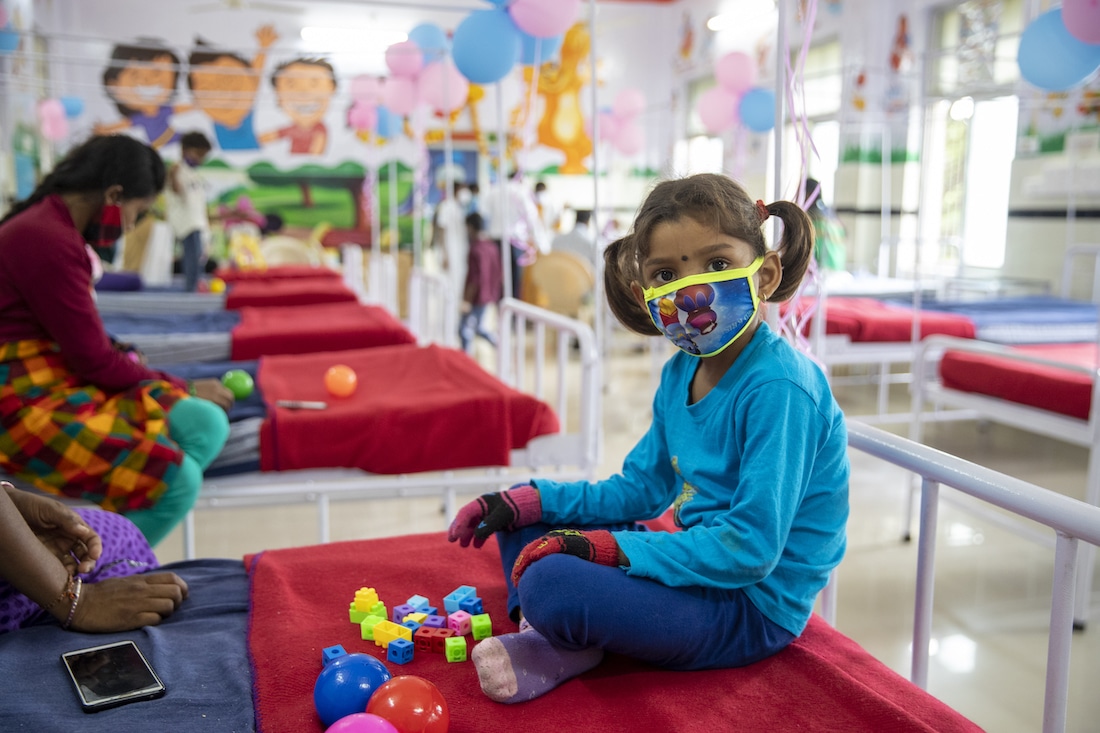

You Can Help
Project HOPE is continuing to respond to health and humanitarian crises — including infectious disease threats and global health security concerns around the world. Here’s how you can help.
Donate. Our ability to respond when health emergencies spread depends on the generosity of people like you. Please make a generous donation today — you’ll help our teams prepare for emergencies before they happen and respond quickly when disaster strikes, so we can help communities around the world when we’re needed most.
Volunteer. Are you a healthcare or other professional who would like to learn more about volunteering abroad with Project HOPE? Learn more about our volunteer program and join our volunteer roster.
Spread the word. Our work is only possible when people passionate about health workers and the communities they serve come together to raise awareness for this lifesaving work. Connect with us on Facebook, Instagram, LinkedIn, Twitter, TikTok, Youtube, and Twitch — and help spread the word by sharing stories that move and inspire you.
Fundraise. Support our team by motivating your friends and family to join you in saving lives with Project HOPE:

Previous Updates
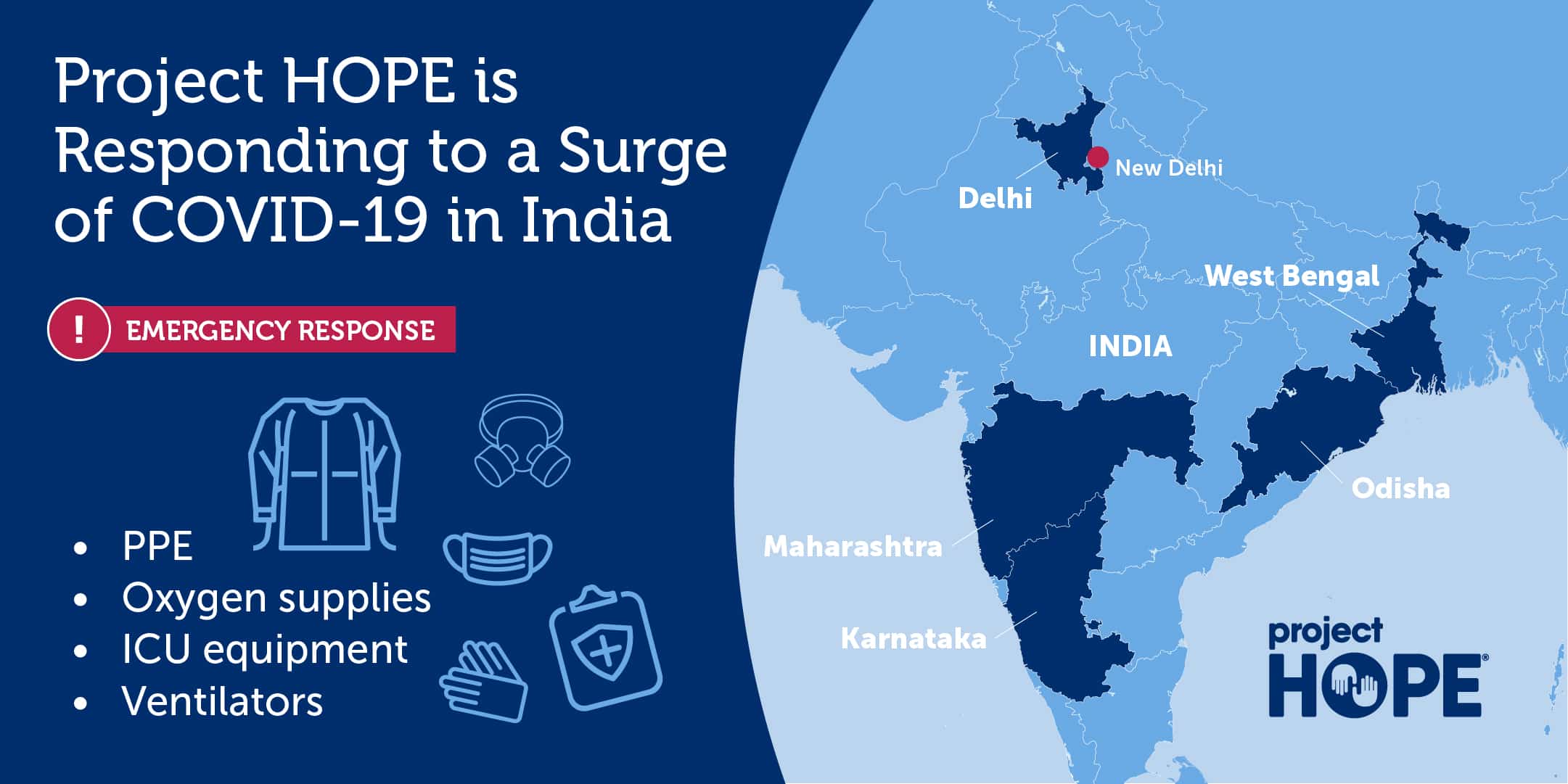
Project HOPE is working with local partners and government officials in India to facilitate the rapid procurement and distribution of PPE, oxygen supplies, ICU equipment, ventilators, and other critical items as the country faces a devastating wave of COVID-19.
Initial plans target five states in India, where Project HOPE is coordinating with government officials to get supplies to hospitals and clinics where they are needed most.
Project HOPE and its network of Indian civil society organizations have delivered health-related programs in India over the past decade, with its most recent project being focused on community-based health and hygiene promotion in Odisha state. In collaboration with our local NGO partner in Odisha, India, HOPE has identified potential areas of response to be in Odisha, West Bengal, Karnataka, Maharashtra, and Delhi, India. Identified needs include oxygen tanks, tents and tubes, ICU beds, PPE, and decontamination units.
India has reported more than 18 million cases of COVID-19 since the pandemic began, but experts warn that the real number could be as much as 30 times higher. The second wave of COVID-19 has brought a dramatic increase in new cases of the disease since March: In the past month, daily case rates have increased tenfold and are setting new single-day records every day.
Learn more about our response to the COVID-19 surge in India.
Nearly one year after the World Health Organization declared COVID-19 a global pandemic, Project HOPE has published an in-depth report detailing our COVID-19 response, which has reached more than 150 countries. The report — which also outlines the next phase of our response involving COVID-19 vaccines — can be viewed at projecthope.org/covid19report.
Project HOPE’s global COVID-19 response, like all of our work, is only possible because of our valued supporters and partners. Thank you for your support and partnership during this unprecedented year, and for all you do to help place power in the hands of health care workers.
“With the COVID-19 virus continuing to spread across African countries, the clock is ticking,” says Rabih Torbay, President and CEO of Project HOPE. “As vaccines become available, local vaccinators are racing against time to immunize as many people as possible. With these trainings, health care workers are equipped with adequate knowledge and skills to respond rapidly and safely.”
February 4, 2021: Project HOPE Providing Surge Support in Navajo Nation
Project HOPE is on the ground in Navajo Nation helping support the Indian Health Service as it faces a lethal spike in COVID-19 cases.
As hospitals in Gallup and Shiprock, New Mexico face a new wave of COVID-19 cases, Project HOPE volunteers are supporting ICU and COVID floor nurses by providing triage and patient care. We are also helping provide mobile COVID-19 testing to detect the spread of the disease.
In Navajo Nation, one nursing volunteer has been sent to Gallup Indian Medical Center in New Mexico and a second will arrive on November 15. In Illinois, Project HOPE is increasing its team to support long-term care facilities as they experience a huge wave in positive COVID-19 cases.
In eight months, Project HOPE has deployed 13 volunteers to Illinois, where they have consulted with 66 long-term care facilities and covered more than 8,200 residents and 11,400 beds. More than 3,600 COVID-19 cases have been reported to the state.
The trainings are just one part of Project HOPE’s COVID-19 response in Latin America: in addition to mental health support, Project HOPE has also distributed 678,000 pieces of PPE and trained 3,800 frontline personnel in COVID-19 preparedness and response.
Read a full summary of our work in our latest COVID-19 situation report.
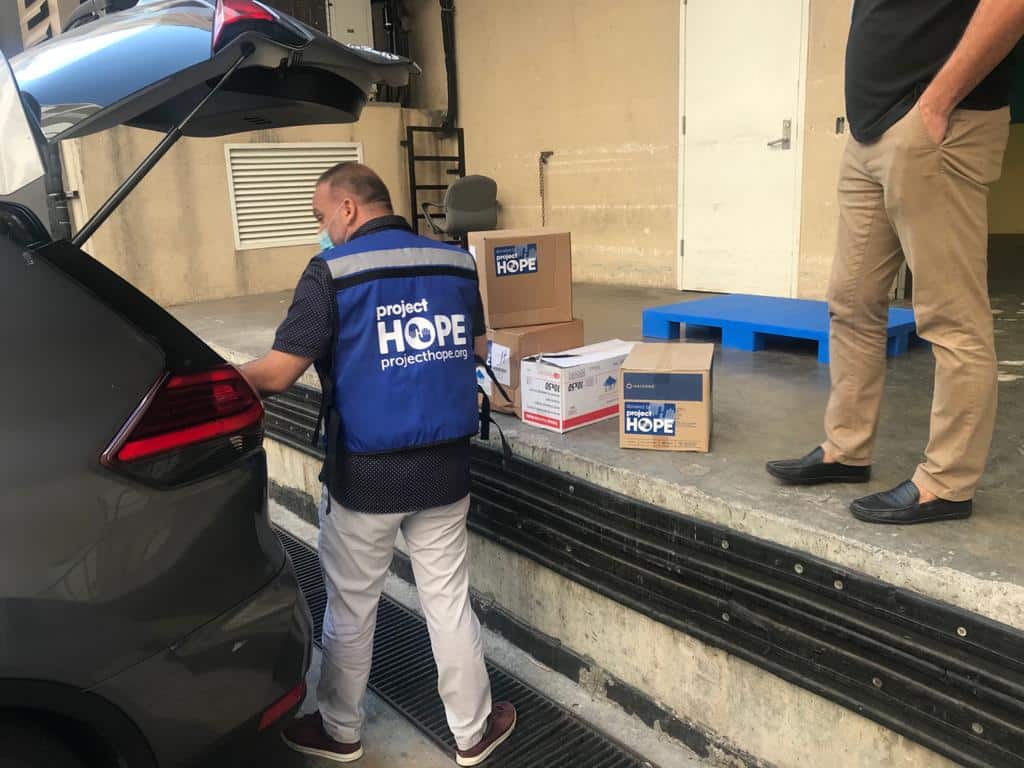
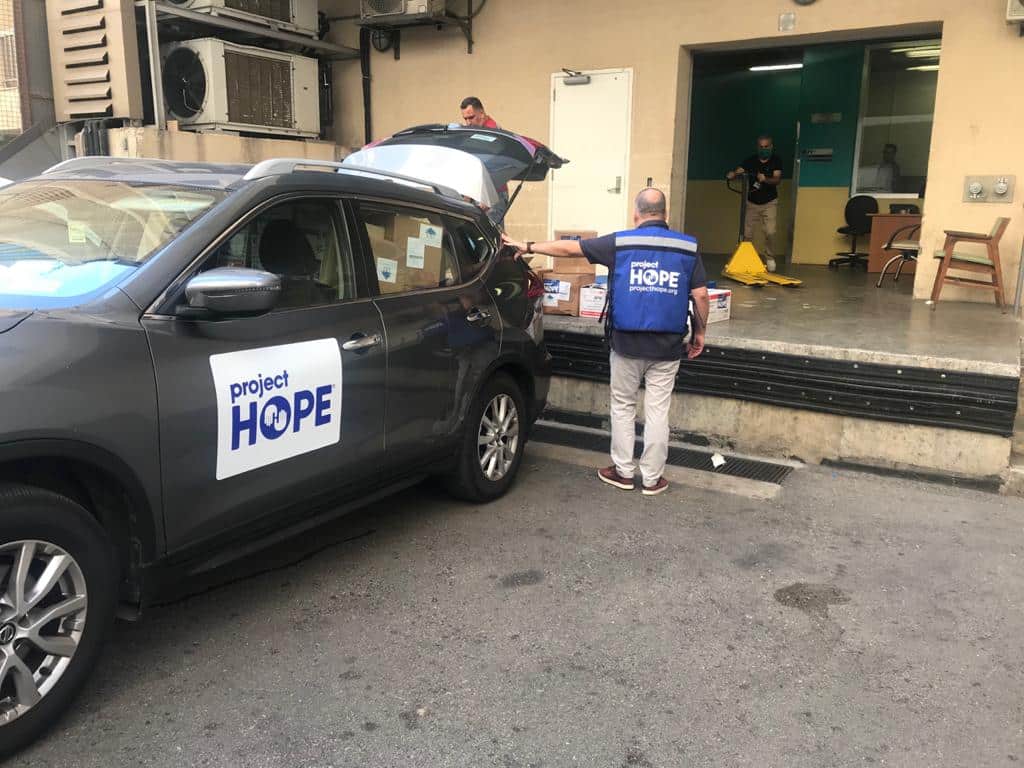
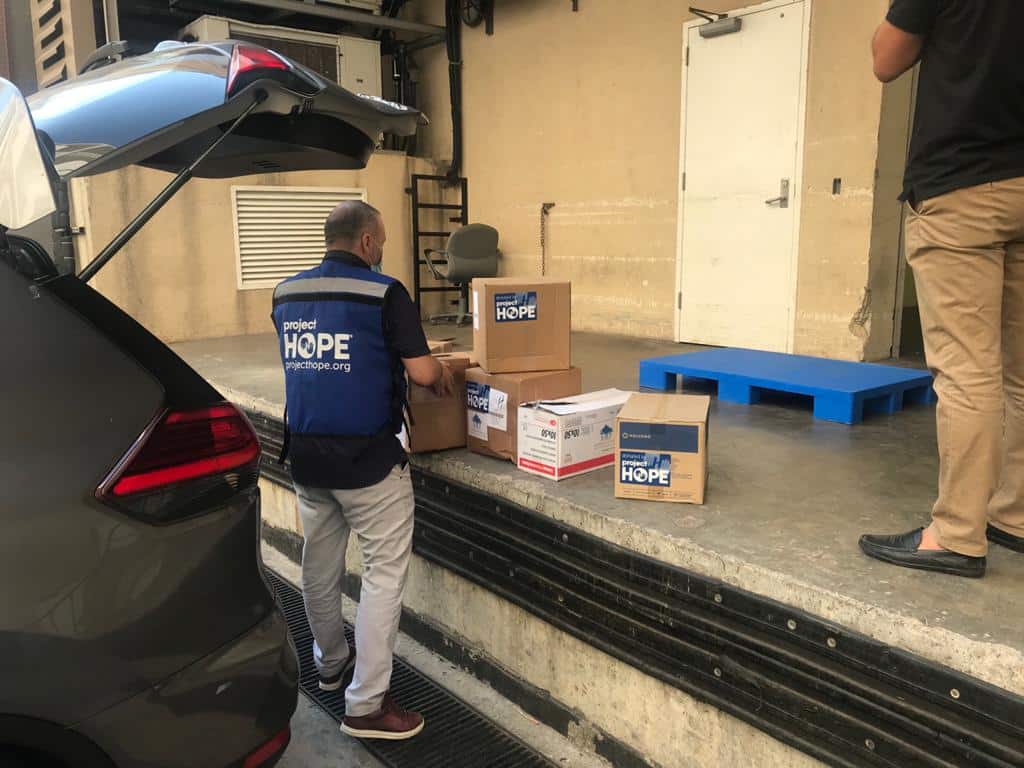
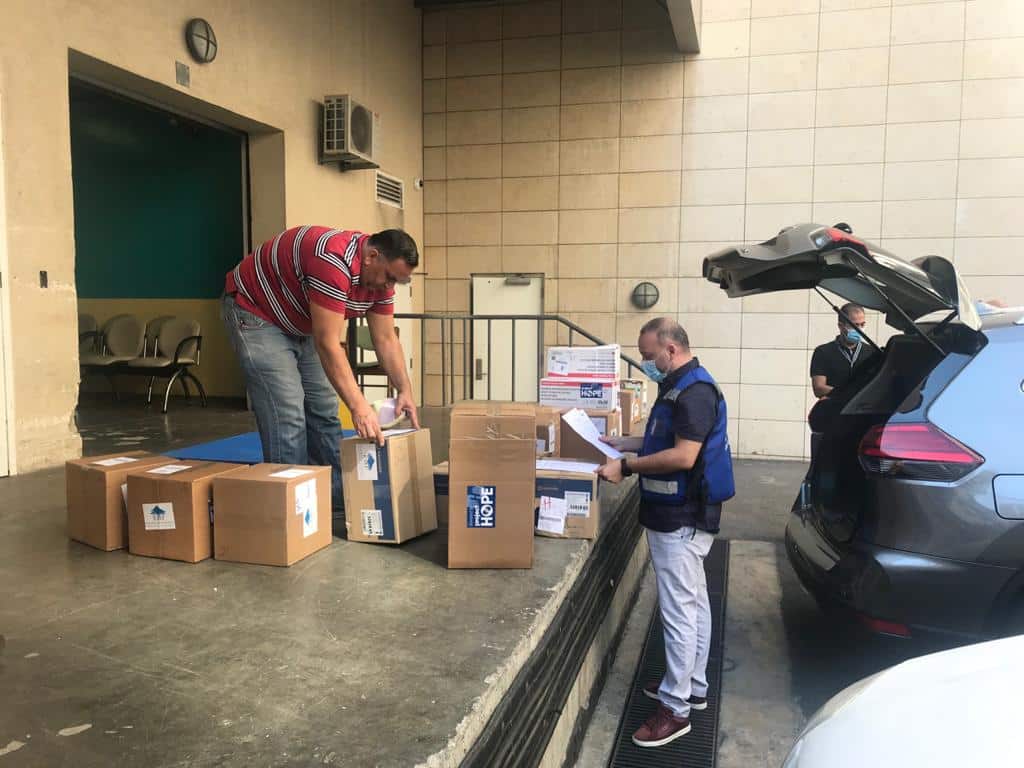
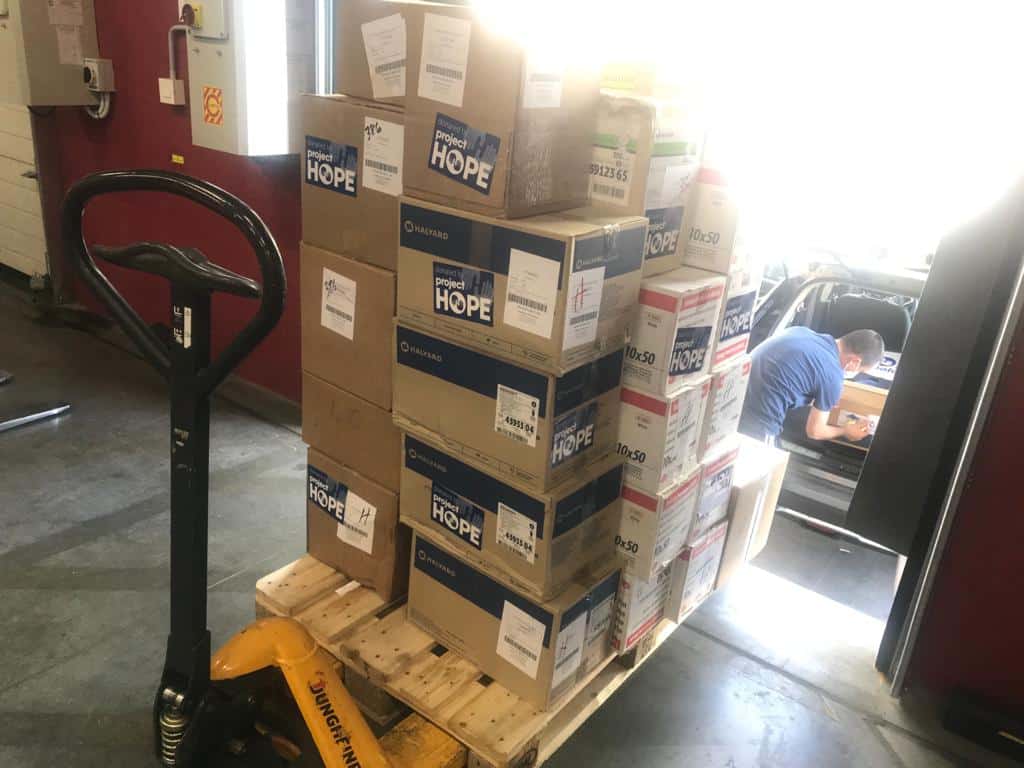





This training is now closed
The COVID-19 situation in these areas is complex as they host high numbers of internally displaced people in communities where the risk of transmission is high and that are currently experiencing floods and heavy seasonal rains.
Since July, Project HOPE has distributed handwashing supplies and health education in two IDP communities of Dire Dawa City, reaching 4,327 beneficiaries from 748 households. Additionally, Project HOPE has trained 162 health workers to date, including doctors, health officers, nurses and midwives, from health facilities in the project locations.
Read the latest situation report on our humanitarian response in Ethiopia.
Worldwide, Project HOPE’s PPE deliveries have included 1.19 million respirator masks, 5.2 million surgical masks, 1.1 million gowns and lab coats, and 1 million pairs of exam gloves. Project HOPE’s most recent delivery in Uzbekistan also included 18,000 COVID tests handed over to the Uzbekistan Ministry of Health.
Project HOPE will continue to procure PPE and medical supplies as long as the supply chain remains intact and funding is available. Additional procurements are expected for partners in the Dominican Republic, Mexico, and Uzbekistan over the following month, with more in the pipeline.
Read more in our latest update: Project HOPE COVID-19 SitRep #23
The team is comprised of nurses able to work in an ICU or other locations with staffing gaps at both Ben Taub and Lyndon B. Johnson hospitals as well as other Harris Health System facilities.
“Project HOPE worked with Harris Health to provide medical surge staff in the aftermath of Hurricane Harvey, and we are humbled and privileged to be able to provide additional personnel to support their staff who have been working around the clock to care for COVID-19 patients,” said Project HOPE President and CEO Rabih Torbay. “Our initial wave of nurses have already started working, and more will arrive in the days to come. We’re also ready to provide additional support, if needed.”
Read more in our latest update: Project HOPE COVID-19 SitRep #22 7.9.2020
Developed in partnership with The Center for Human Rights and Humanitarian Studies at the Watson Institute of Brown University, the training is designed to help health workers learn to safely and effectively screen, triage, and treat patients with COVID-19 while also protecting their own health.
The eight online training modules cover topics including Infection Prevention and Control; Surveillance and Contact Tracing; Diagnosis and Management; and Risk Communication and Public Health Messaging. Each module includes interactive elements and knowledge checks to reinforce key information. These trainings can be accessed in environments with low bandwidth internet service and are designed to be mobile phone-friendly. Each training module takes approximately 30 minutes to complete.
This training is now closed.
In partnership with Massachusetts General Hospital’s Global Disaster Response team, HOPE recently deployed four nurses to Chinle, Arizona, in response to clinical staffing needs in Navajo Nation. These nurses are augmenting staff in the Intensive Care Unit and Emergency Department to help the hospital meet increased patient loads due to COVID-19.
Additionally, HOPE volunteers are also supporting mobile testing efforts for vulnerable communities in Montgomery County, Maryland. Project HOPE has also donated nearly 20,000 respirator masks and 18,000 surgical masks to Montgomery County, provided by Eli Lilly and Company.
Read our full situation report here: Project HOPE COVID-19 SitRep #21 6.25.2020.docx.
The COVID-19 Training for Health Workers: Preparedness and Response curriculum was developed earlier this year by Project HOPE and the Center for Human Rights and Humanitarian Studies at the Watson Institute of Brown University. The courses were originally delivered in person in a “train the trainer” format for health facilities in high-risk countries. Thanks to the generous support of the Center for Disaster Philanthropy, Project HOPE was able to work with the experts at DisasterReady.org, a signature program of the Cornerstone OnDemand Foundation, and SweetRush, a custom learning solutions provider known for its support of foundations and nonprofits, to convert the live training modules into free, on-demand online courses for frontline workers.
Read our full press release here.
HOPE is actively working to ship 880,000 surgical gowns and 1.5 million exam gloves (750,000 pairs) from its warehouse in Virginia to states prioritized by the Federal Emergency Management Agency. The first shipment will be delivered to New York City today and a second delivery is scheduled for New York State tomorrow. Shipments for Illinois, Michigan, New Jersey and Massachusetts will follow later this week.
Read our full update here: >> Project HOPE COVID-19 SitRep #20 6.10.2020
The pilot phase of the platform expansion will allow health care providers from Colombia, Ethiopia, North Macedonia, and Kosovo to conduct e-Consults with experts in the United States, providing them the opportunity to discuss case management and treatment of complex COVID-19 cases.
Up to 60 providers from four countries are being registered with the Weitzman Institute to have access to the application. Registered clinicians will be able to share case findings and complications (including data such as scans and lab results) via the platform and receive guidance and feedback from clinicians in the U.S. within 24 hours. This is the first time the Weitzman Institute’s e-Consults tools have been accessible to an international audience. Together, Project HOPE and the Weitzman Institute will evaluate success of the pilot phase and develop a plan for further expansion.
The deliveries went to health partners in five states, including Navajo Nation, Arizona; the City of Chicago, Illinois; Cook County, Illinois; Montgomery County, Maryland; Harris Health Systems in Texas; and Gallup Indian Medical Center in New Mexico.
Project HOPE has also begun the distribution of more than 40,000 KN95 masks in the U.S. and the Dominican Republic, with generous support from partners including the Ricky Martin Foundation, CharityStars, Jet Blue, and the Juan Luis Guerra Foundation.
In addition to delivering lifesaving protective gear, HOPE continues to train frontline doctors and nurses, with 16,000 health workers now trained across 20 countries. Project HOPE is partnering with DisasterReady to convert the COVID-19 Healthcare Preparedness & Response training into a free e-learning platform available soon on the DisasterReady website.
Master Trainers from 16 countries, trained directly by experts from Brown University, are now cascading the modules to additional health care workers within their networks and in coordination with local partners. This past week, cascade trainings were implemented to more than 11,700 health care workers and frontline personnel in the Dominican Republic, Indonesia, and the Philippines.
To date, more than 14,800 people have been trained by Master Trainers and additional cascade training plans are in development. Including the Master Trainers, more than 15,600 health care workers and frontline personnel have been trained through this initiative.
Brown University experts are continuing to deliver live, remote training to Master Trainers, with cadres in Nepal and Colombia scheduled to participate in the next two weeks.
Additionally, 5 million pieces of personal protective equipment have been distributed to hospitals across five continents, while the first wave of HOPE volunteers has been deployed to support surge staffing in long-term care facilities in under-resourced areas in Cook County and the City of Chicago.
HOPE continues to support a host of other COVID-19 activities worldwide, including contact tracing, handwashing promotion, peer education, psychosocial support, risk communication, and screening and triage. As this work expands, we are working with local health systems to help ensure continuity of care in their hospitals and clinics.
Additional teams of Project HOPE volunteer medical responders are on standby for deployment to support alternate care sites across the U.S.
Project HOPE continues to train frontline health workers around the world to treat COVID-19 in their communities. This week, HOPE held trainings in the Philippines, the Dominican Republic, and Mexico. Future trainings will be held in Bangladesh, Haiti, and Colombia.
Additionally, participants from earlier trainings are now hosting secondary trainings in North Macedonia, Kosovo and the United States. As of April 16, Project HOPE has trained 449 Master Trainers, who have since trained an additional 1,424 of their colleagues around the world.
The training materials are identical to those used in Project HOPE-run trainings and come with additional video demonstrations and online quizzes. The materials are available to the public at no cost and are designed using the Training of Trainers model so that master trainers can train others in their community.
Organizations or individuals interested in gaining access to the self-guided training materials can apply at projecthope.org/covid19training.
Business Roundtable, Project HOPE, and Healthcare Ready are joining forces to rapidly mobilize protective gear and other vital equipment for America’s nurses, doctors, and other health workers fighting COVID-19. These critically needed supplies will be allocated to health facilities in coordination with Healthcare Ready, which is working in partnership with the Federal Emergency Management Agency. Learn more about this partnership here.
Additionally, Project HOPE and Eli Lilly have partnered to deliver N95 masks, protective lab coats, and gloves to hospitals in New York, New Orleans, Los Angeles, and Puerto Rico. Last week, Project HOPE and Americares joined forces to deliver more than 3 tons of lifesaving personal protective equipment to the city of Chicago.
In coordination with the Commissioner of the Chicago Department of Public Health, the first rotation of Project HOPE volunteers will be seeing patients at the McCormick Place Convention Center, which is being converted into an emergency medical facility for non-acute COVID-19 patients. The McCormick Center is expected to hold more than 3,000 beds, with the first 500 available by end of next week.
Project HOPE is also in conversations with partners in the cities of New York and New Orleans for volunteer placement. More than 200 Project HOPE volunteers are on standby, including doctors, registered nurses, and pharmacists.
Additionally, Project HOPE and Americares joined forces to deliver more than 3 tons of lifesaving personal protective equipment to the city of Chicago on April 3. This shipment contains 25,000 surgical masks, 19,000 isolation gowns, 15,450 pairs of examination gloves, and other supplies critically needed by Chicago’s frontline health workers.
These remote-by-design trainings were created in partnership with experts from Brown University and will be underway soon in Kosovo and other countries where Project HOPE works. The curriculum will be widely available in English in the coming days, with Spanish and French translations underway.
In the U.S., HOPE is procuring a shipment of personal protective equipment, which will include N95 masks and Tyvek lab coats from their Indianapolis facility. Additionally, HOPE is preparing to provide surge support in Chicago starting next week, with medical volunteers helping staff a COVID-19 overflow space at the McCormick Center.
Project HOPE has activated its Illinois-based roster of volunteer medical professionals to provide surge staffing at the McCormick Center in Chicago, which will serve as overflow space for the treatment of moderately affected COVID-19 patients to alleviate the burden on hospitals with limited beds and equipment. HOPE is also partnering with the Weitzman Institute to expand access to COVID-19 eConsultations for primary care providers to consult with infectious disease specialists online.
Since the outbreak began, Project HOPE and its teams in Wuhan, Shanghai, and Beijing have been providing vital personal protective equipment and medical equipment to frontline health workers. As the number of new cases inside China continues to decline and manufacturing operations increase, HOPE is working with local manufacturers to secure PPE that meets internationally recognized standards and establish a supply chain from China to countries that are high-risk or are experiencing stock-outs of supplies. In addition to PPE, HOPE will source critically needed medical supplies and equipment as resources allow.
“As a global humanitarian organization, Project HOPE’s mandate is always to respond where the need is greatest, and now the need is massive right here at home,” said Rabih Torbay, President and CEO of Project HOPE. “We will be supporting America’s health workers as they work to save lives and fight the virus’s spread. And because one case can ignite a cluster, we’re also looking at ways we can support underserved and marginalized communities that are unlikely to seek testing.”
This is not the first time Project HOPE has used its global expertise to tackle health-related issues in the United States. In 2017, Project HOPE responded to three major hurricanes – Harvey, Irma, and Maria – by sending medical volunteers to Texas, Florida, and the U.S. territory of Puerto Rico.
HOPE teams in North Macedonia, Kosovo, Colombia, Indonesia, and Ethiopia are working to develop and prepare for response activities in coordination with local partners. Activities will include delivering preparedness and response training to health care workers, strengthening surveillance and contact tracing, and mitigating the risks of the virus on the Colombia-Venezuela border. Inside China, HOPE delivered 10 disinfection machines, 12 air compressors, and 15 ventilators to hospitals in Hubei Province this week. Despite the recent decline in new cases, Hubei Province reported there were a cumulative total of more than 4,100 severe cases as of March 11.
On March 4, China’s top industry regulator and health authority announced that the needs for PPE and medical equipment in response to the virus had been met in Hubei Province. Manufacturers within China are being encouraged to export their products to support other countries as the virus spreads. Project HOPE is in touch with local manufacturers and is actively sourcing PPEs in China for procurement and export to high-risk countries.
Project HOPE is on the ground in Wuhan, helping support doctors and nurses on the front lines of the virus.
In total, Project HOPE has distributed more than 5 million pieces of personal protective equipment to over 27 hospitals across Hubei, Yunnan, Jiangsu, Anhui and Sichuan provinces and Shanghai since the outbreak began in January. Upcoming distributions include 15 ventilators, 12 medical air compressors, 10 disinfection machines, and 2,100 surgical gowns.
Additionally, HOPE is expanding its COVID-19 strategy in response to the number of cases rapidly increasing around the world and requests from local governments and partners. In addition to procuring and distributing medical equipment and supplies in China, HOPE will focus on strengthening the preparedness of global health care workers, particularly in low and middle-income countries.
Project HOPE is partnering with the Center for Human Rights and Humanitarian Studies at the Watson Institute of Brown University to develop a health worker training package designed to rapidly and sustainably scale-up local capacity for COVID-19 preparedness and response, which will be piloted following requests from the Ministries of Health in Macedonia and Kosovo. Additionally, we are working with our country leadership in other geographies including North Macedonia, Kosovo, Ethiopia, Indonesia, and Colombia to determine their exact preparedness needs and how we can support their ministries of health, front line health workers, and communities to better detect, contain, and respond to this viral threat.
As COVID-19 continues to spread, HOPE is identifying critical areas for support and is ready to assist. Programmatic areas could include: trainings on infection, prevention and control to protect nurses and other frontline health workers; advising governments on policy development and coordination; and supporting health outreach workers to conduct community-based surveillance, reporting, and contact tracing.
In China, HOPE continues to procure personal protective equipment and medical equipment for distribution. The following procurements are expected to be delivered to hospitals in Wuhan and other areas of need in the coming weeks:
- 15 ventilators and 12 medical air compressors
- 495,000 face masks
- 20 defibrillators and 20 patient monitors
- 1,500 masks and 500 face shields
- More than 2,100 surgical gowns
To date, supplies have been delivered to more than 22 hospitals across Hubei Province, Shanghai, Yunan Province, Jiangsu Province, Anhui Province, and Sichuan Province.
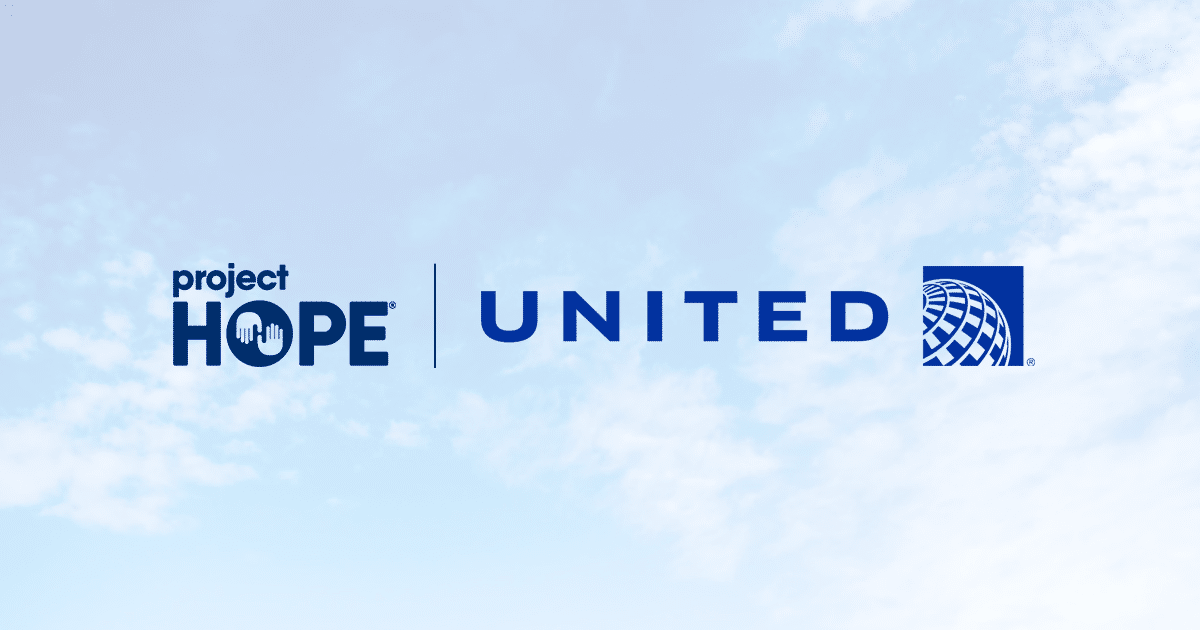
United Airlines is donating funds to deliver desperately needed ventilators to 11 hospitals in Hubei Province, the epicenter of the COVID-19 outbreak in China, which remains under lockdown and continues to host the highest number of cases.
The ventilators, which can help save the life of a critically ill patient with a respiratory illness like COVID-19, will be delivered to the hospitals by Project HOPE’s team in China in coming days.
Last week, the Project HOPE team in China received a shipment of PPE donated by MedShare, SOS, Goods 360, and Mission Outreach, which arrived via donated flights from the UPS Foundation with additional support from the Coca-Cola Foundation. In addition to the respirator masks and isolation gowns, the shipment included other PPE such as surgical gowns, scrubs, caps and shoe covers.
Since February 3, HOPE has distributed more than 2 million face masks, 11,000 protective suits, and 280,000 pairs of exam gloves to public hospitals in Wuhan.
Project HOPE has received a 17-ton shipment of protective equipment and medical supplies brought to Wuhan via four aircraft charted by the U.S. Department of State. The supplies include protective gear, medical supplies, and humanitarian aid donated by U.S. businesses and relief organizations. Project HOPE received the supplies and is working with the Hubei Charity Federation to facilitate deliveries to hospitals on the front lines of the outbreak.
Additionally, HOPE recently distributed protective equipment and supplies donated by MedShare and MAP International to the Neurology Department at Xinhua Hospital in Wuhan. Prior to this shipment, each doctor in the Neurology Department had one coverall suit that had been used for at least a week and was disinfected only with UV rays at the end of each day.
Project HOPE is working to facilitate two more airlifts of personal protective equipment this week and continues to support frontline health workers in Wuhan and Shanghai.
Our first large-scale shipment was transported to Wuhan on February 3, containing over 2 million N95 masks, 11,000 protective suits, and 280,000 pairs of nitrile gloves, which were distributed to six public hospitals in Wuhan. A second shipment containing 220,000 face masks, 870 pairs of protective goggles, and more than 6,500 pairs of protective coveralls was distributed to Shanghai Children’s Medical Center on February 4.
Additionally, part of a second shipment has also arrived, including 12 pallets of protective equipment donated by Latter-day Saint Charities. This shipment has been delivered to the Shanghai Children’s Medical Center. An additional four deliveries of 68 more pallets will arrive Tuesday.
As China continues to urgently call for medical equipment and surgical masks, additional airlifts of protective equipment are planned in the coming days and weeks.
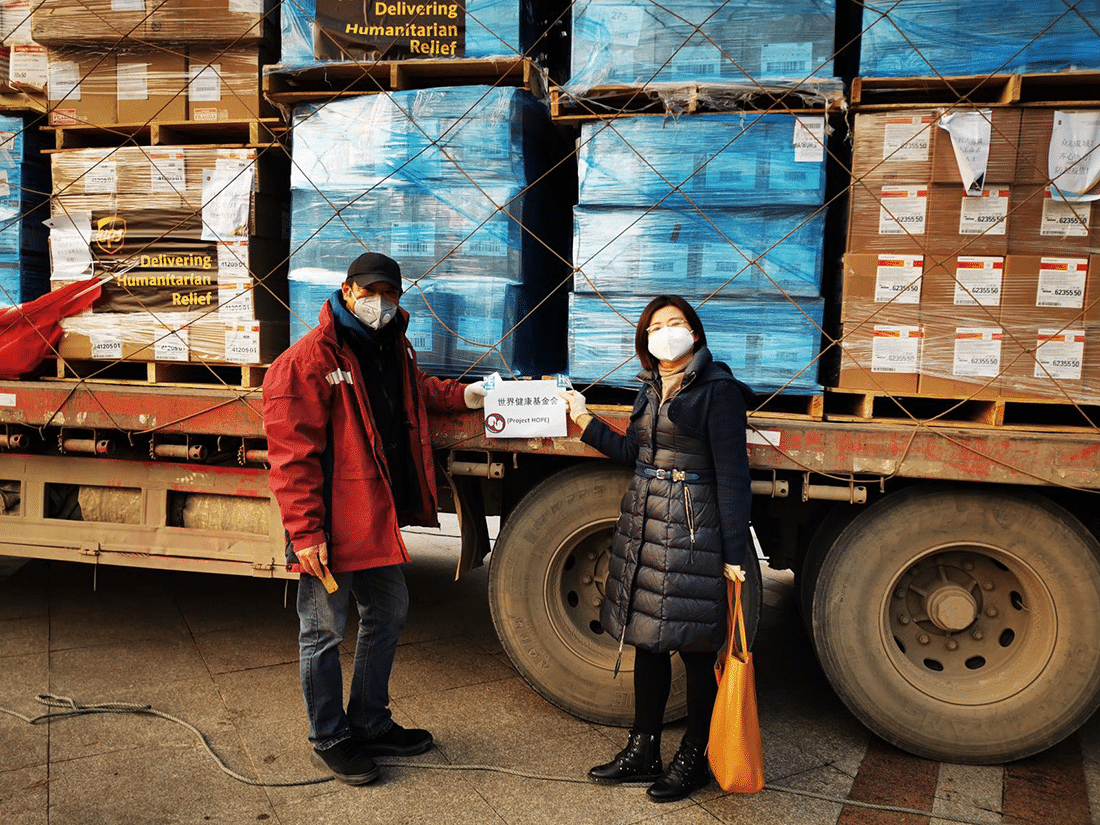
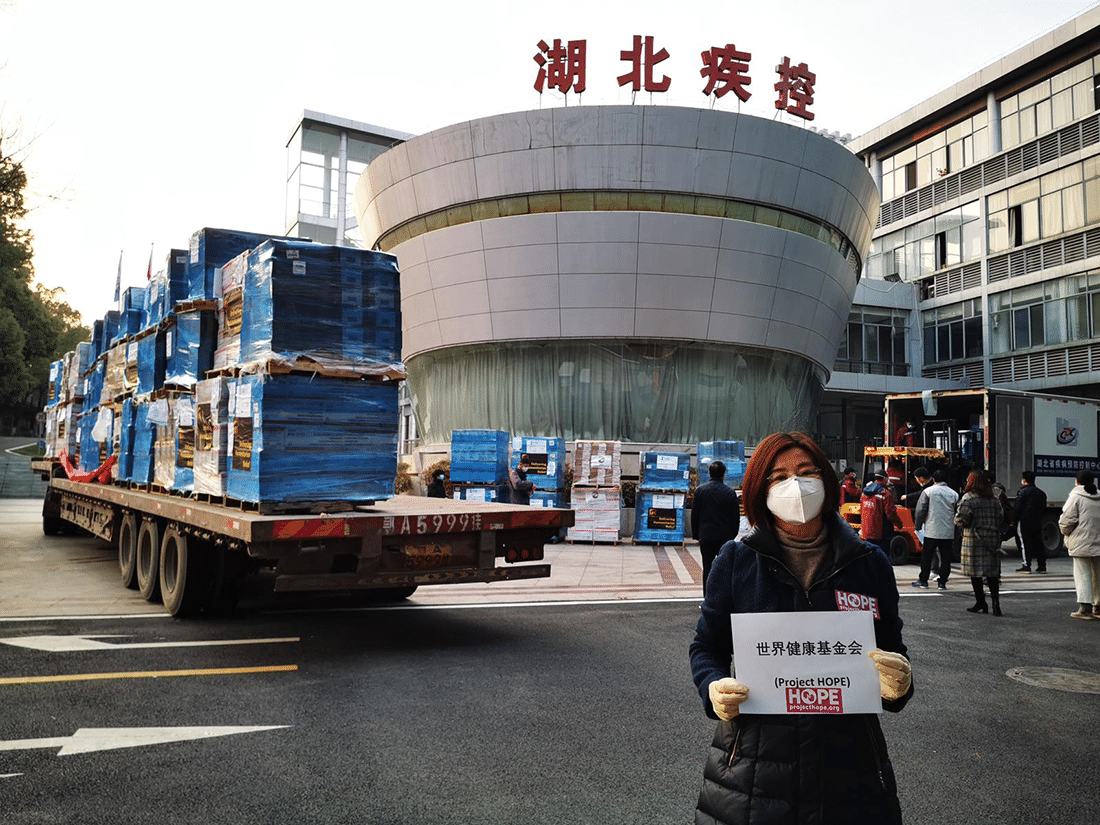
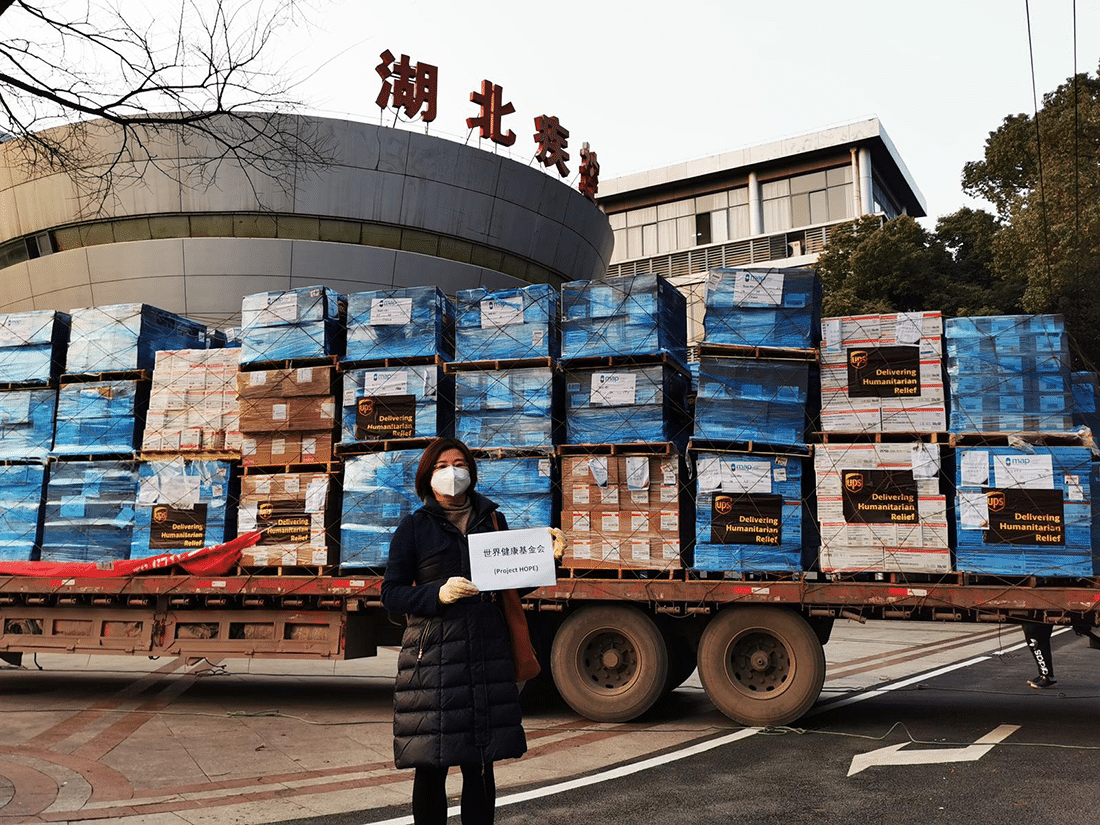
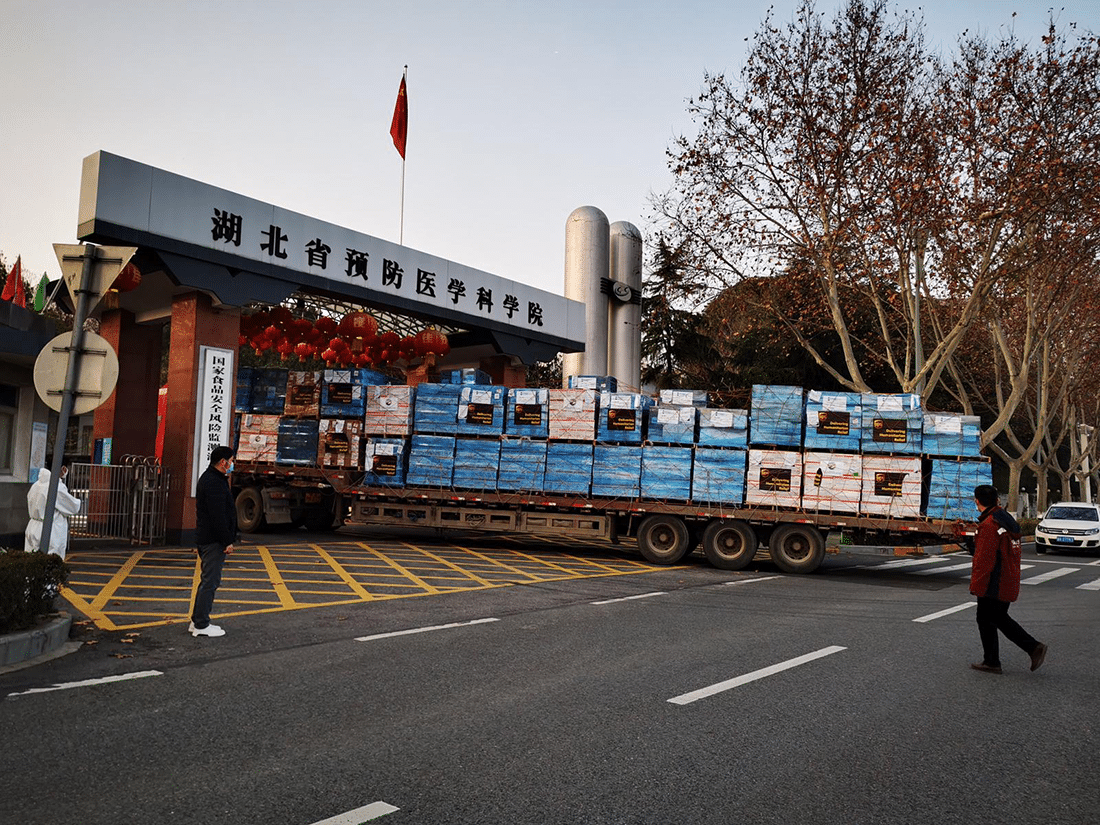
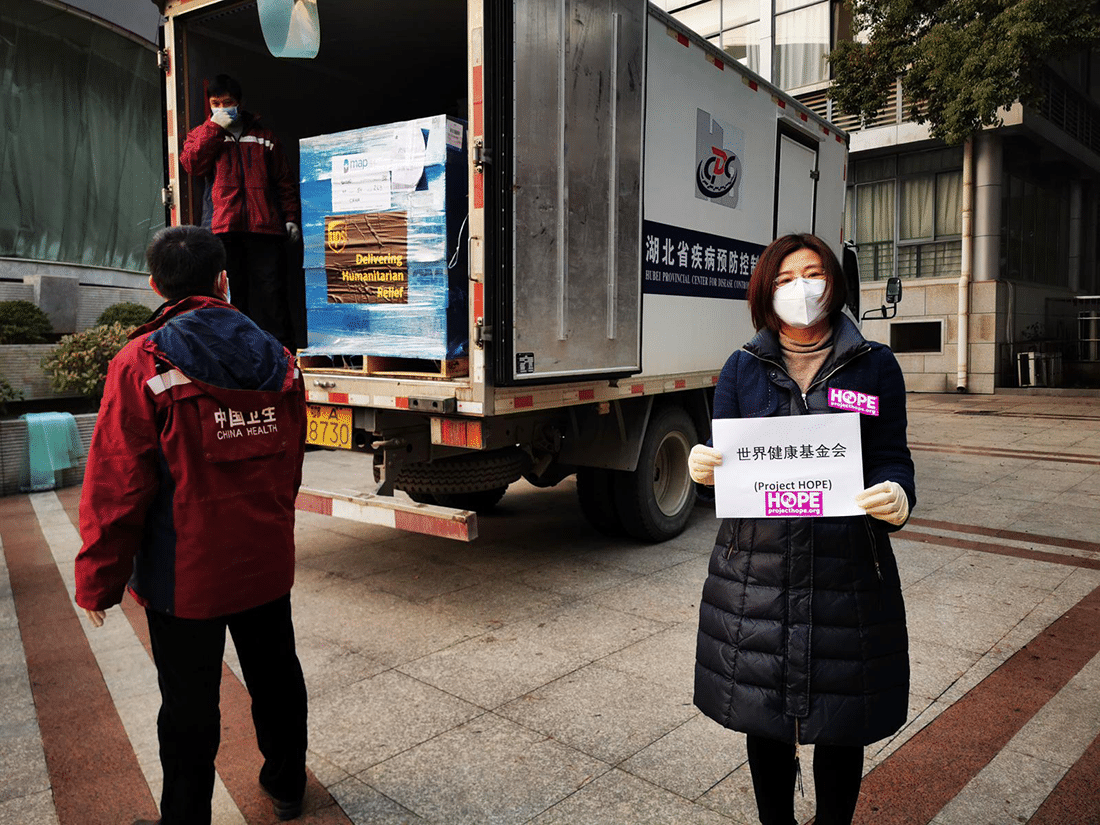





As supplies are running low in China, Project HOPE is mobilizing multiple airlifts of personal protective gear and other critical medical supplies to support doctors and nurses in Wuhan.
Right now, Project HOPE staff in China are prepared to receive the first airlift on Sunday, which will include more than 2 million respirator masks, 280,000 pairs of gloves, and 11,000 protective coveralls provided by MAP International and MedShare, utilizing in-kind transport from UPS.
HOPE will support the delivery of the supplies to Hubei Provincial Center for Disease Control and Prevention and onward to hospitals in Wuhan.
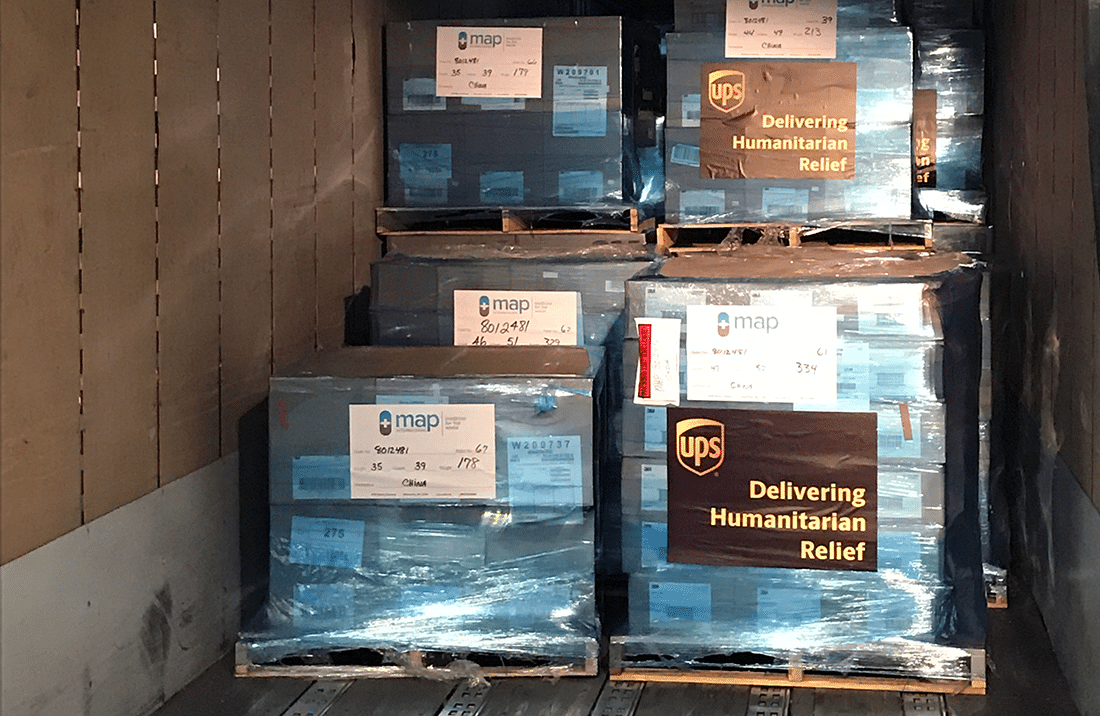
Project HOPE is airlifting critical supplies to frontline health workers in Wuhan, China, including 220,000 face masks, 870 pairs of protective goggles, and more than 6,500 pairs of protective coveralls. The donations are from Latter-day Saint Charities and will be bound for Wuhan in the coming days.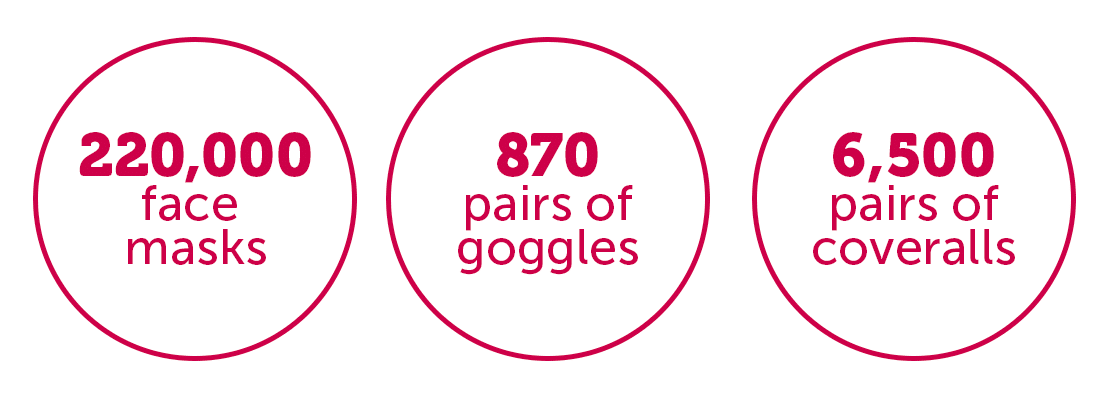
“Personal protective equipment is often the only barrier between a doctor or nurse and the critically ill patient during a disease outbreak,” said Rabih Torbay, President and CEO of Project HOPE. “The items being flown to Wuhan will help replenish stockpiles in hospitals on the front lines of this outbreak, some of which Project HOPE has supported for nearly 20 years.”
The equipment will help meet the immediate needs of doctors and nurses in Renmin and Zhongnan Hospitals at Wuhan University as they manage the massive influx of patients presenting with flu-like symptoms.
Project HOPE has a long history in Wuhan, having collaborated with Wuhan University for more than 20 years to establish the HOPE School of Nursing, which has trained thousands of nurses.